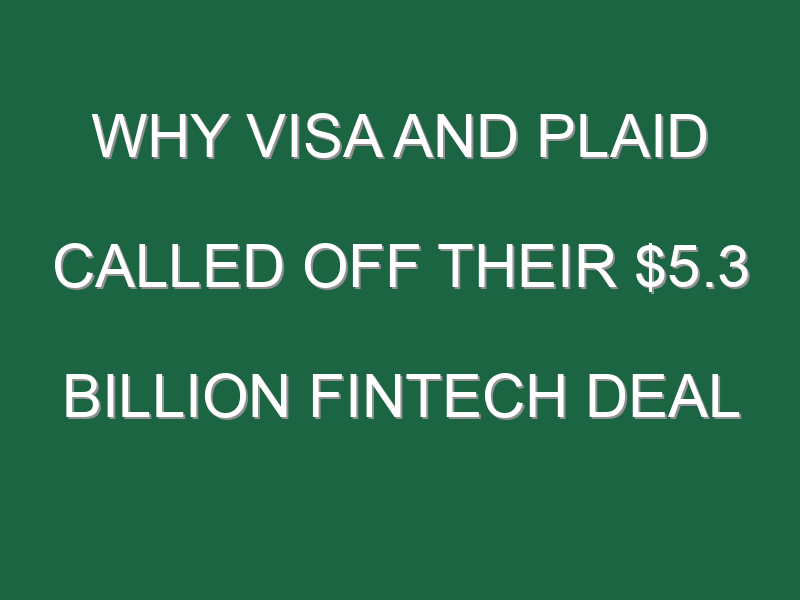One year after Visa announced its agreement to buy fintech startup Plaid, the companies on Tuesday walked away from the deal amid regulatory opposition that threatened to hold up the merger for years.
The proposed $5.3 billion deal was one of the fintech industry’s largest in history, and preceded a flurry of other mergers by financial companies in early 2020 before the pandemic.
The companies said they mutually agreed to terminate their agreement after the Department of Justice sued to block the deal in November on antitrust concerns, claiming that Visa, the largest credit and debit payments network in the U.S., aimed to acquire Plaid in order to quash a “competitive threat.” Plaid’s software helps power most major fintech apps, including Venmo, Robinhood, SoFi and others, by connecting them with customers’ bank account data. The litigation threatened to delay the transaction by at least two or three years, according to a person with knowledge of the proceedings, with the first trial date scheduled for the end of June of this year.
The timing of the decision is likely due to a clause typical of merger agreements, which gives companies one year to complete a deal before the terms expire or must be renewed. Calling the deal off now means neither company owes any fees to the other for the breakup, Visa executives said.
While both companies felt they could have successfully fought the DOJ in court, protracted litigation made the merger route untenable, particularly for a startup like Plaid, which was founded in 2013. Moving forward without Visa’s backing, Plaid will likely seek to raise a fresh round of venture capital in the coming months, according to a person close to the company.
The head of the DOJ’s antitrust division, Makan Delrahim, celebrated the termination of the deal, calling it “a victory for American consumers and small businesses” as the department moved to have its lawsuit dismissed.
Still, Visa and Plaid said they would find other ways to collaborate short of a merger, as they do not view each other as competitors. “We just believe that the lawsuit is wrong on the basis of facts and the basis of law,” Al Kelly, Visa’s CEO told investors on a conference call following the announcement. Instead, Visa, which is an investor in Plaid, plans to partner with the company; Kelly suggested Plaid, for instance, could distribute Visa services to its fintech clients.
“We view Plaid as another network,” Kelly added. “They happen to be a network where the fuel is data, whereas we move funds.”
More must-read finance coverage from Fortune:
- These Fortune 500 companies are halting contributions to Republicans (and Democrats) in the wake of Capitol attack
- Trump to leave office with the worst jobs record since Herbert Hoover
- Still waiting on your $300 unemployment benefit to start? What you need to know
- Still waiting for your second stimulus check? How to track down your money
- What a second Trump impeachment could mean for the stock market




